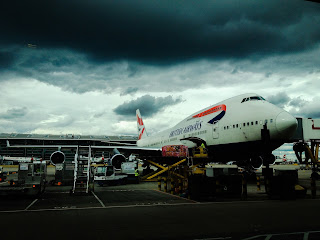Hey there!
Pre-9/11, “the FAA led the security screening development and regulation required access passed the security checkpoint clear, a basic screening progression. The FAA delegated this screening not to the airports but to the airline with the greatest presence on each concourse – normally the airline that had signed a long-term use and lease agreement with the airport. Private Screening companies such as Argenbright Security, ICTS parent company to Huntleigh, and Globe Security, were operating at the time of 9/11. Which deemed the screening process as “the structural failure was that the airlines had no real incentive to make security a priority” (Tyler, 2016). For legislation to venture back to the old security screening companies is a major concern for the traveling public. Post-9/11, these security companies have been out of the game and would require immense training in order to become current in their functionality. Additionally, DHS has concentrated its efforts in a single government entity: TSA. This agency has inundated the traveling public with policies and procedures that, in theory, are supposed to be effective but has unfortunately been consistent in exposing its deficiencies to protect the public. These inconsistencies will continue to permeate and self-destruct due to failures of fully addressing the problems that DHS and TSA encounters. Even if legislation returns to previous security methods that establish contracts for either concourses or designated hub airports or a designated screening for spoke cities, if TSA, who is one agency, has been exposed of its inconsistencies and failures from its implemented policies how can these inconsistencies and problems be properly solved by having a multitude of security companies operating and being executed differently by various airlines as TSA is supposed to provide the same format?
Granted there are other approaches to the deficiency in airport security that propose solutions, such as obtaining technology that conducts behavioral analysis or more K-9 enforcement/personnel, yet they will not fully achieve their desired results until this is accomplished: ameliorating the necessary training and productivity of airport personnel. With over 20 years in the airline industry, starting as a Ticketing Agent to finishing as a General Manager, and a doctorate in Public Policy and Administration specialized in Homeland Security Polic and Coordination, I can validly testify that the success of attempting to correct the imperfections in the foundation of airport security rests on the effectiveness of its frontline: airport and TSA employees. For they are the first line of defense of communication of implemented policies are misconstrued, misunderstood, or even dissected to discover voids and loopholes, then the passing of prohibited items will continue and yet again the traveling public are forced to subject their liberty in abiding to such policies that simultaneously jeopardize their safety. As stated in the New York Times articles on the Brussels attack, “Ultimately... .the debate over how or whether to further enhance airport security forms part of the broader political discussion in Europe and elsewhere about how to strike the appropriate balance between safety and liberty. A balance where the public is able to travel freely and safely.
Though it is annually observed as an anniversary that honors and remembers those lives that were lost through either unfortunate victimization or commendable heroism, the tragedy of September 11, 2011, did not cease that day but initiated a new beginning. That date was the start of the exploitation of the weaknesses in the American airline industry as well as supporting government agencies by using aircrafts as weapons of destruction. The redundancy of the defects in prohibited passing through security checkpoint keeps threatening the safety and liberty of the traveling public through unexpected yet routinely executed terrorist attacks. To reiterate or quote statistics or other substantiating data would be irrelevant for each new attack had, has, and will continue to affirm not only the imperfections in the foundation of airport security and supporting government agencies but also the ineffectiveness of resolutions to such imperfections. Imperfections that are consistently exposed to these attacks that keep rekindling this debate of how to ensure security that will not continue to put the safety of the traveling public at risk. There should not have to be collateral damage due to this mistake.
My book, The Inside Man, addresses this mistake as a core weakness that has been repeated in past and recent attacks: the passing of prohibited items through the security checkpoint. I further elaborate on this defection by emphasizing its deteriorating impact on ensuring safety to the public as it impeded the effectiveness of communication - in regards to implementation of policies for airport security – between personnel and government agencies. Additionally, with your gracious sponsorship, this book can also supplement the new Homeland Security degree that Embry-Riddle is offering by providing assistance in the construction of curriculum, a different perspective on the airline industry and the infrastructure of airport security, and additional promotion for the degree program through my growing social networks.
Enjoy!
Tyler, S. (2016). The Inside Man: Evaluating Security Communication Failures at a United States Commercial Airport. University Press of America. Rowman & Littlefield.



